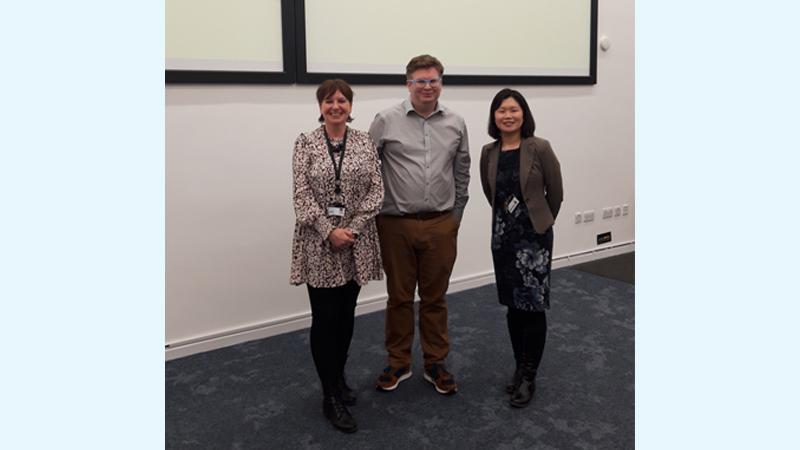A Research Symposium on Neurological Conditions, which presented the latest cutting-edge research on several neurological conditions, took place on Friday 24 February 2023 at the University of Westminster’s Cavendish Campus. It was funded by the Quintin Hogg Trust.

The event explored the latest research on a range of neurological conditions such as epilepsy, Alzheimer’s disease, amyotrophic lateral sclerosis (ALS) and Parkinson’s disease. It was organised by Dr Joan Liu and Dr Adele McCormick, Senior Lecturers in the University of Westminster’s School of Life Sciences.
Ten presentations were given during the day, from a range of academics, including Westminster alumna Dr Leah Mursaleen, who was a member of a research group led by Professor Mohammed Gulrez Zariwala, Director of the Centre for Nutraceuticals. Representatives from charities such as the Epilepsy Society and the Motor Neurone Disease Association also gave presentations. These talks explored the impact of epilepsy on people’s daily lives and the search to find a cure for motor neurone disease.
Professor Brendon Noble, Head of the University’s School of Life Sciences, introduced the event. Dr Liu and Dr McCormick presented talks titled Spatial Transcriptomics in Epilepsy Research and Do Ancient Retroviruses Contribute to ALS? respectively.
Dr Kalpana Surendranath, Senior Lecturer in the University’s School of Life Sciences and Leader of the University’s Genome Engineering Lab, presented a talk called CRISPR in Neuroscience: Scanning Millions of Bases to Demystift the Trillions of Connections of the Human Brain.
Dr Thomas Moore, Associate Head of the University’s College of Liberal Arts and Sciences, offered closing remarks.
Talking about the event, Dr Liu said: “It is so important to continually share research on neurological conditions with fellow academics and leaders in the field. Events like this, which are key to continually exploring and better understanding neurological conditions, are always enriching and positive experiences. I would like to thank everyone that attended the event or gave a presentation.”
At the end of the event, those in attendance heard details about a Quintin Hogg Trust-funded trip to the European Molecular Biology Laboratory in Germany in April. The Trust exists to support the education of students at the University.
Find out about Biological and Biomedical Sciences courses at the University of Westminster.




